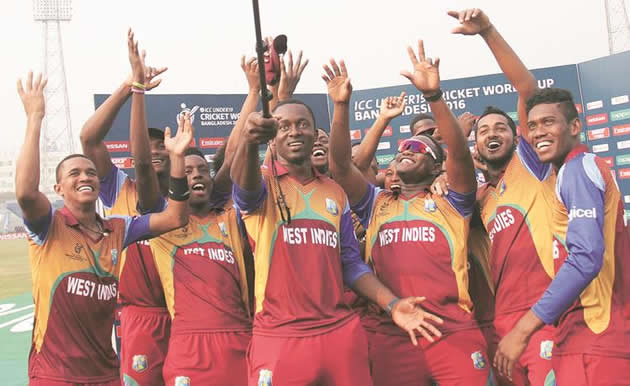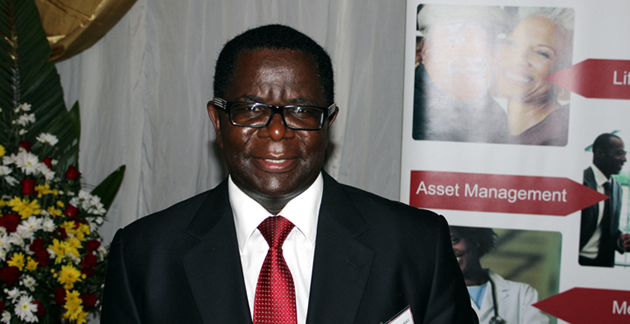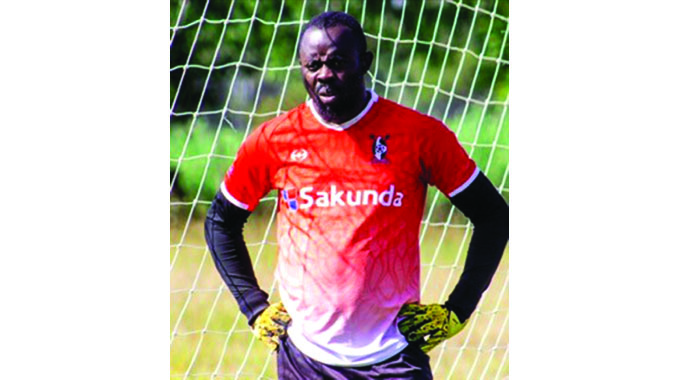Windies coach reflects on mankad


CHEATS OR CHAMPS? . . . The West Indies players celebrate after winning the ICC Under-19 World Cup earlier this year, having squeezed into the knockout stages following a controversial win over Zimbabwe, which triggered a global debate. — Cricinfo
KINGSTON. — It was the incident that shook the ICC Under-19 World Cup, one that cost Zimbabwe badly and helped West Indies find a life and a springboard to win the tournament this year.
Now, as the dust has settled, West Indies Under-19 coach Graeme West says that was the game of the tournament and talks about how his team overcame the mankad controversy and won the World Cup.
Question: Regarding the mankading incident against Zimbabwe, did the team discuss it with you before it took place, or was it spontaneous?
Answer: I had never been involved in such an incident, as a player or coach. It was not discussed or planned prior to the game. It was down to the situation itself. There was some observation in the penultimate over that the batsman was looking to get a head start.
The bowler, Keemo Paul, was aware about it going into the last over. Hence, he hadn’t entered his delivery stride at all when he brought the stumps down. It was very much in the spur of the moment.
Therefore, my initial reaction was a little bit of shock, in terms of not being prepared for something like that, given the nature of the situation as well.
We fought back in the game magnificently, got them nine down, and we were in a position to win the game.
But with six balls to go and three runs to win in what was the game of the tournament, it will probably be remembered only for that one moment.
Question: Was there any pressure on captain Shimron Hetmyer to withdraw the appeal?
Answer: The referral to the third umpire came after the umpire had asked Hetmyer if he would like to proceed with the appeal. He said yes straight-away, and the team was 100% behind that.
The discussions after the game were two-fold. Firstly, I don’t think anybody on the field was aware of the reaction that was going to follow. We had to make the guys aware that it is going to be out there, you don’t need to make any comment. You played within the laws of the game.
The unfortunate situation with this is the perception and interpretation of the law.
You have not done anything that infringes on that, you can move forward. We did say that in future, if a situation like that occurs, when you see that the batter is moving early, you involve the umpire. Make the umpire and batsman aware that you have seen it.
We travelled very early the next morning, which was a good thing because it allowed the players to move on, not dwell on that.
We knew that we had Pakistan to play in the quarter-final and that was going to be a huge game for us. We had a lot of work after the Zimbabwe game because there were areas where we hadn’t performed well in that match.
Question: Was there a discussion on this philosophical disconnect, where you are doing something right and legal but at the same time you are made to feel guilty about it?
Answer: This is an anomaly within the laws of the game. Young players have seen such incidents and they are into the visual side of things and that is how they learn and get their ideas from.
A number of players have seen this not just on the international stage but also in the domestic stage in the Caribbean. That was one of the reasons why they felt the way they did.
We had to make it very clear to Keemo and to the rest of the team that they had not said anything wrong, despite the feeling that you had done something terrible.
If there was a case where the ball clearly came off the bat or glove through to the keeper and was not given, clearly that would infringe on the spirit of the game far more. Ian Bishop spoke very well after the game, saying reinforcing the law and regulation is what is going to uphold the game.
Jason Holder was quite vocal in support of what had happened, and in support of the players moving forward in the tournament. Did that renew their confidence in themselves?
We were very grateful for the comments that came, particularly from the Caribbean, in support of what happened. We didn’t sit the players down and get them to read the comments. I am sure they were available to them and they would have seen them.
The perception would be slightly different in England. That is one of the reasons why you get the disparity in the reaction. We got back to the same thing – the rules, the laws of the game are such that it is within the laws. Maybe the culture in some countries is slightly different. It was interesting in the Murali Kartik incident as well.
There have been discussions with the captains before the World T20, in terms of what would happen in a similar scenario, and the match referee encouraging the players to not carry out such an act. Again, you are questioning the laws of the game here. It has to be brought to the public again. There will be another discussion between those who make the rules, shortly.
Question: Coming from England as you do, are there any challenges in coaching in the Caribbean?
Answer: As a coach coming to the Caribbean, the biggest difference I found was the players’ background, what coaching support they had received before they came into contact with me.
In England there is a system whereby you have a coach from a very young age at the club or school, and then your counties will pick you up and develop you and feed you into an academy.
There is a consistent coaching support in the development of a player, which is paramount for player development.
At the moment, in the Caribbean that is not the same. So the players are not as comfortable initially with coaching support. They are their own coach or mentor and have developed a style that has produced some success.
My biggest challenge was developing relationships with players so that they can understand where I was coming from, and information that I could offer them would be valid, that they would try it out and see how it suits them.
That was a big learning curve for me. Myself and Corey spent a lot of our time in Bangladesh talking to them about the game, making them aware of the situations, getting their thoughts on how they would play in that situation.
There are some good coaches in the Caribbean, but many experienced players with a great wealth of knowledge who can, given the right opportunities, pass that down, and that will be important for cricket in the Caribbean to move forward. — Cricinfo.








Comments